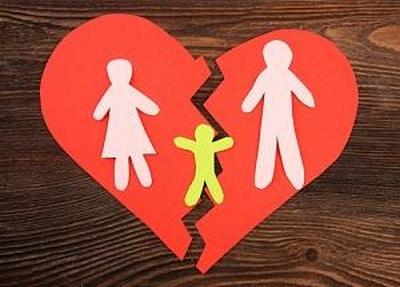Recent Blog Posts
Remembering the Most Overlooked Assets in Divorce
 If you and your spouse are headed for divorce, you know that you will be expected to divide your marital property between the two of you. While you may not know for sure how that will play out, you may already be thinking about who—if either of you—will keep the marital home, who will get which car, and how to split the household furniture. In the stress and confusion of the divorce process, however, you may be forgetting about a very important—and possibly very valuable—asset of which you may be entitled a portion. Experts say that retirement accounts are the most commonly overlooked assets in a divorce case.
If you and your spouse are headed for divorce, you know that you will be expected to divide your marital property between the two of you. While you may not know for sure how that will play out, you may already be thinking about who—if either of you—will keep the marital home, who will get which car, and how to split the household furniture. In the stress and confusion of the divorce process, however, you may be forgetting about a very important—and possibly very valuable—asset of which you may be entitled a portion. Experts say that retirement accounts are the most commonly overlooked assets in a divorce case.
Retirement Savings and Plans
Before marital property can be divided, both you and your spouse should provide one another with a full accounting of all of your assets and debts, even if you think he or she already knows about them. In some cases, this may require a few calls to old employers inquiring about the status of employer-funded retirement programs or plans. You may realize that you have forgotten about a 401(k) plan or similar account that was opened years ago. The same may be true for your spouse, and the money in such accounts, depending on when the accounts were funded, may be considered part of the marital estate.
When is DNA Testing Used to Establish Paternity in Illinois?
 If a woman in Illinois who is married to a man has a child, her husband is automatically presumed to be the child’s biological father. The father will not need to take additional action to establish himself as the child’s legal parent. When unmarried parents have a child together, the father is not automatically considered the legal father until he takes certain steps. Many people falsely assume that a father can gain legal parentage of a child by simply writing his name on the child’s birth certificate. However, before a father can be listed on a child’s birth certificate, he must establish paternity. Depending on the circumstances, DNA testing may be necessary to establish the biological relationship between a child and the child’s presumed father.
If a woman in Illinois who is married to a man has a child, her husband is automatically presumed to be the child’s biological father. The father will not need to take additional action to establish himself as the child’s legal parent. When unmarried parents have a child together, the father is not automatically considered the legal father until he takes certain steps. Many people falsely assume that a father can gain legal parentage of a child by simply writing his name on the child’s birth certificate. However, before a father can be listed on a child’s birth certificate, he must establish paternity. Depending on the circumstances, DNA testing may be necessary to establish the biological relationship between a child and the child’s presumed father.
Establishing Legal Parentage of a Child
There are three ways that an Illinois parent can establish paternity. If both parents agree that the father is indeed the child’s biological father, the parents can sign a Voluntary Acknowledgement of Paternity (VAP) and file it with the Illinois Department of Healthcare and Family Services (HSF). The VAP form is typically available at the hospital when the baby is born, or it may be obtained through the HSF website, local child support office, County Clerk’s Office, or local Registrar’s office.
Living With Your New Partner Will Likely End Spousal Maintenance
 If you are receiving spousal maintenance, you probably know—or, at least, assume—that your former spouse’s financial obligations to you will end in that event you ever get remarried. It only makes sense. When you get remarried, you become financially interdependent with your new spouse, all but making your ex all but irrelevant—children’s needs notwithstanding. Depending on your situation and your desires, however, you may be inclined to shy away from marriage for a time after your divorce, as your last formal commitment may have soured you a bit on the institution. As an alternative to getting married, you may decide to move in with your new partner, but you should know that, in most cases, cohabitation is grounds for ending spousal maintenance as well.
If you are receiving spousal maintenance, you probably know—or, at least, assume—that your former spouse’s financial obligations to you will end in that event you ever get remarried. It only makes sense. When you get remarried, you become financially interdependent with your new spouse, all but making your ex all but irrelevant—children’s needs notwithstanding. Depending on your situation and your desires, however, you may be inclined to shy away from marriage for a time after your divorce, as your last formal commitment may have soured you a bit on the institution. As an alternative to getting married, you may decide to move in with your new partner, but you should know that, in most cases, cohabitation is grounds for ending spousal maintenance as well.
Growing Trend
Evolving social mores and more liberal views on interpersonal relationships have led to an increasing number of unmarried couples living together. Many choose the arrangement as a precursor to marriage, while others are content to remain cohabiting indefinitely. While sociologists and religious authorities continue to debate the morality of cohabitation, legal systems around the country have been forced to contend with the changing concepts of household and family.
Family Law Mediation Allows You to Express Yourself
 As form of dispute resolution that is available in virtually every type of civil proceeding, mediation typically allows competing parties the opportunity to hammer out an agreement that reasonably meets the needs of everyone involved. This holds true in a large number of arenas, including personal injury concerns, business disputes, and, of course, divorce and family law. Perhaps the biggest advantage to seeking mediation in your divorce or child-related matter your ability to be clearly heard throughout the process, a luxury not necessarily afforded in many court-handled cases.
As form of dispute resolution that is available in virtually every type of civil proceeding, mediation typically allows competing parties the opportunity to hammer out an agreement that reasonably meets the needs of everyone involved. This holds true in a large number of arenas, including personal injury concerns, business disputes, and, of course, divorce and family law. Perhaps the biggest advantage to seeking mediation in your divorce or child-related matter your ability to be clearly heard throughout the process, a luxury not necessarily afforded in many court-handled cases.
Strict Legal Guidelines
While the statutes regarding divorce and family law are constantly being updated to allow for more individual consideration, the fact of the matter is that a court can only do so much. A presiding judge is expected to take into account an ever-growing list of circumstantial considerations, which may include those related to each spouse and the children involved. To truly appreciate a family’s situation, a judge would need to review the case for hours and hours, discussing intimate details with each party, and doing so is clearly not a realistic expectation. Thus, court decisions are often based on a very limited understanding of the facts, and only those that each party remembers to include in presented documents.
What Is the Role of a Guardian ad Litem in an Illinois Child Custody Case?
 Divorcing and unmarried parents sometimes have disagreements about the allocation of parental responsibilities and parenting time. When these disagreements require court intervention, an Illinois family court judge may appoint an attorney called a guardian ad litem who is tasked with representing the child’s interests. A parent involved in a child custody dispute may also request a guardian ad litem (GAL) to appointed during a child-related legal dispute.
Divorcing and unmarried parents sometimes have disagreements about the allocation of parental responsibilities and parenting time. When these disagreements require court intervention, an Illinois family court judge may appoint an attorney called a guardian ad litem who is tasked with representing the child’s interests. A parent involved in a child custody dispute may also request a guardian ad litem (GAL) to appointed during a child-related legal dispute.
Guardian ad Litem Investigations
GALs are often appointed in family law cases involving especially contentious child-related disputes or allegations of domestic violence. Because children cannot adequately advocate for their own best interests in court, a guardian ad litem advocates on the child’s behalf. The GAL will typically conduct an investigation in order to learn more about the circumstances of the dispute so that he or she can offer an informed recommendation to the court. This can include investigating the parents’ homes and everyday lives as well as investigation of other individuals important to the case. The GAL may also interview school officials or other people involved in the child’s life. He or she may review court documents, financial statements, the child’s school reports, and other relevant documents.
How Can an Emergency Order of Protection Help Me?
 Being a victim of domestic violence can be a confusing and scary experience to endure. Victims may be uncertain of what their abuser is actually capable of or if the abuser will follow through with his or her threats. In many cases, a victim of domestic violence may be unsure as to whether or not the treatment he or she is being subjected to even “counts” as domestic violence. If you have been a victim of abuse by a household or family member, romantic partner, or ex-romantic partner, an emergency order of protection may benefit you in several ways.
Being a victim of domestic violence can be a confusing and scary experience to endure. Victims may be uncertain of what their abuser is actually capable of or if the abuser will follow through with his or her threats. In many cases, a victim of domestic violence may be unsure as to whether or not the treatment he or she is being subjected to even “counts” as domestic violence. If you have been a victim of abuse by a household or family member, romantic partner, or ex-romantic partner, an emergency order of protection may benefit you in several ways.
What Is Considered Domestic Violence?
When most people think of domestic violence, they imagine physical abuse like punching, hitting, pushing, slapping, and kicking. However, this is not the only type of abuse that may be cause for acquiring an emergency order of protection. Domestic violence or abuse can also involve psychological or emotional manipulation. An abusive person may humiliate, demean, or frighten his or her victim in order to control him or her. The perpetrator may also threaten the victim or the victim’s loved ones. Some abusers control victims through financial means such as withholding money, prohibiting the victim from gaining employment, or controlling the victim’s spending to an extreme degree. One of the most important things to remember about abuse is that many abusers escalate the abusive behavior over time. If someone has made you feel afraid for your safety, an emergency protection order can help ensure that the situation does not worsen.
Getting a Divorce When Your Spouse is Physically Abusive
Intimate partner violence is tragically common. According to the National Coalition Against Domestic Violence, 20 people are abused by a spouse or significant other every minute in the United States. Ten million U.S. men and women are victims of physical abuse from a romantic partner every year. If you have been physically abused by your spouse, you should know that you are not alone. Making the choice to leave an abusive spouse is an extraordinarily brave decision. If you are considering divorcing a spouse who has abused you, there are some special considerations you may want to keep in mind.
Orders of Protection
If you are worried that your spouse will harm you or your children once he or she learns that you plan to divorce him or her, you may want to obtain an order of protection, sometimes called a restraining order. An Illinois emergency order of protection (EOP) can be obtained at your county courthouse without the need for your spouse to be present.
Can Child Support Orders Be Extended Past Age 18 if the Child Has a Disability?
 Illinois law requires parents to financially contribute to their child’s upbringing. In the case of unmarried or divorced parents, this most often involves child support payments. Typically, child support payments are terminated when a child reaches eighteen years of age and is therefore legally an adult. The now-adult child is expected to start taking responsibility for himself or herself and make his or her own money. However, if the child suffers from a disability, he or she may be unable to do so. In situations like these, child support payments may be extended past the typical time period.
Illinois law requires parents to financially contribute to their child’s upbringing. In the case of unmarried or divorced parents, this most often involves child support payments. Typically, child support payments are terminated when a child reaches eighteen years of age and is therefore legally an adult. The now-adult child is expected to start taking responsibility for himself or herself and make his or her own money. However, if the child suffers from a disability, he or she may be unable to do so. In situations like these, child support payments may be extended past the typical time period.
Disabilities That Qualify for Extended Child Support
Both mental and physical disabilities can qualify a person for child support after he is an adult. Section 513.5 of the Illinois Marriage and Dissolution of Marriage Act (750 ILCS 5) states that when an individual’s mental or physical impairment “substantially limits a major life activity,” he or she is considered to be disabled. These impairments may include psychiatric conditions, developmental disorders, intellectual disabilities, and physical handicaps. Any impairment that directly affects the child’s ability to perform daily living tasks may qualify the child for extended child support.
What Should I Do If My Child’s Other Parent Refuses to Follow Our Child Custody Order?
 In Illinois, parents who divorce are asked to create a parenting plan. The plan identifies the parent who has the majority of parental responsibility (formerly called custody), describes how major decisions about the child will be made, provides a schedule for sharing parenting time, and more. If the parents are unable to reach an agreement about the terms of the parenting plan through negotiation or mediation, the court may need to decide on a parenting plan on behalf of the parents. However the parenting plan is put in place, it is an official court order that parents are expected to obey completely. If your child’s other parent is not following the directions contained in the parenting plan, he or she could face serious consequences.
In Illinois, parents who divorce are asked to create a parenting plan. The plan identifies the parent who has the majority of parental responsibility (formerly called custody), describes how major decisions about the child will be made, provides a schedule for sharing parenting time, and more. If the parents are unable to reach an agreement about the terms of the parenting plan through negotiation or mediation, the court may need to decide on a parenting plan on behalf of the parents. However the parenting plan is put in place, it is an official court order that parents are expected to obey completely. If your child’s other parent is not following the directions contained in the parenting plan, he or she could face serious consequences.
When a Parent Intentionally Ignores a Parenting Plan
If your child’s other parent is occasionally late picking up or dropping of your child or makes other minor mistakes with regard to shared parenting, this is not grounds for court action. However, if the parent is purposefully refusing to follow the terms of your parenting plan, it may be time to do something about it. Notify the court of the other parent’s actions and contact an experienced family law attorney. In some cases, a parent who intentionally disobeys a parenting plan can be held in contempt of court and face certain civil consequences. If your child’s other parent is incapable of following the terms of the parenting plan, you may wish to petition the court for a modified parenting plan. Illinois courts will always make child custody and parenting time decisions based on what is in the child’s best interests.
Can I Still Collect Child Support If My Child’s Other Parent is in Jail?
 For many divorced and unmarried parents, money is tight. If you are a single parent, you probably have many financial obligations including housing costs, childcare expenses, school-related expenditures, and more. If you receive child support from your child’s other parent, you may depend upon these payments heavily. If something were to happen and you no longer received child support, you would be in serious trouble. These are the concerns that many parents have when they learn that their child’s other parent has been incarcerated.
For many divorced and unmarried parents, money is tight. If you are a single parent, you probably have many financial obligations including housing costs, childcare expenses, school-related expenditures, and more. If you receive child support from your child’s other parent, you may depend upon these payments heavily. If something were to happen and you no longer received child support, you would be in serious trouble. These are the concerns that many parents have when they learn that their child’s other parent has been incarcerated.
Parents Are Still Expected to Pay Child Support Even While Incarcerated
If your child’s other parent has been arrested and charged with a crime, he or she may be spending time in jail or prison. However, this does not mean that he or she is automatically relieved of child support obligations. When a person is incarcerated, the court still expects him or her to continue paying child support. However, the incarcerated parent does have the option to petition the court for a temporary child support modification. The court may grant this modification if the parent can prove that he or she genuinely needs it. For example, if the incarcerated parent cannot participate in a work release program and has no income, the court may allow him or her to temporarily stop making child support payments. Once the parent is released from jail, he or she must pay the past due amount.












 630-352-2240
630-352-2240



